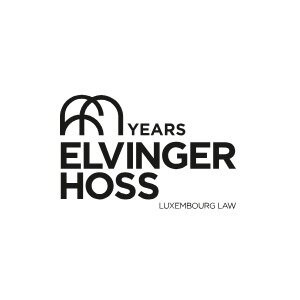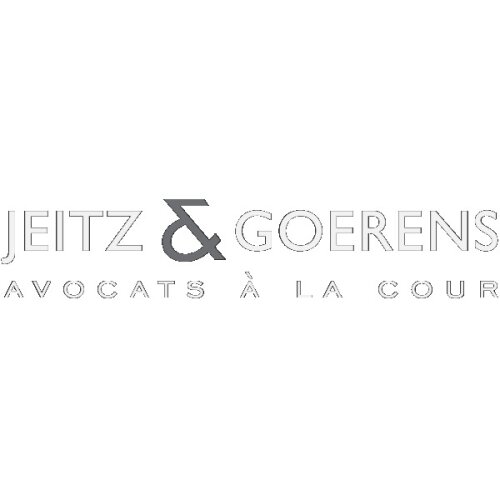Best Oil, Gas & Energy Lawyers in Luxembourg
Share your needs with us, get contacted by law firms.
Free. Takes 2 min.
List of the best lawyers in Luxembourg, Luxembourg
About Oil, Gas & Energy Law in Luxembourg, Luxembourg:
Oil, gas, and energy play a significant role in Luxembourg's economy. The country has a mix of oil, gas, and renewable energy sources that contribute to its overall energy supply. The legal framework around oil, gas, and energy in Luxembourg is complex and requires a thorough understanding of both local and international laws.
Why You May Need a Lawyer:
There are various situations where individuals or businesses may require legal assistance in the oil, gas, and energy sector in Luxembourg. This could include contract negotiations, regulatory compliance, dispute resolution, environmental concerns, and more. A lawyer can help navigate the intricate legal landscape and protect your interests.
Local Laws Overview:
Luxembourg has specific laws that regulate the exploration, production, and distribution of oil, gas, and energy resources. Some key aspects include licensing requirements, environmental regulations, taxation, competition law, and EU directives that impact the industry. It is important to adhere to these laws to operate legally and avoid potential legal issues.
Frequently Asked Questions:
1. What are the main sources of energy in Luxembourg?
Luxembourg relies on a mix of renewable energy sources such as hydro, wind, and solar power, as well as conventional sources like oil and natural gas.
2. How are oil and gas exploration rights granted in Luxembourg?
Exploration rights for oil and gas in Luxembourg are typically granted through a licensing process overseen by the Ministry of the Economy.
3. What environmental regulations apply to the oil, gas, and energy sector in Luxembourg?
The environmental regulations in Luxembourg aim to minimize the impact of energy production on the environment and require companies to comply with strict standards regarding emissions, waste disposal, and conservation.
4. How are energy prices regulated in Luxembourg?
Energy prices in Luxembourg are subject to regulation by the government to ensure fair competition and consumer protection.
5. What are the tax implications for companies operating in the oil, gas, and energy sector in Luxembourg?
Companies operating in the energy sector in Luxembourg are subject to specific tax rules governing their activities, including corporate income tax and VAT.
6. What rights do landowners have in relation to oil and gas exploration on their property?
Landowners in Luxembourg have certain rights regarding oil and gas exploration on their property, including the right to negotiate compensation for the use of their land.
7. How can I resolve a dispute related to oil, gas, or energy in Luxembourg?
Disputes in the oil, gas, and energy sector in Luxembourg can be resolved through negotiation, mediation, arbitration, or litigation, depending on the nature of the issue.
8. Are there incentives for investing in renewable energy projects in Luxembourg?
Yes, Luxembourg offers incentives for investing in renewable energy projects, including tax credits, subsidies, and grants to promote sustainability and reduce carbon emissions.
9. What are the key regulatory bodies overseeing the oil, gas, and energy sector in Luxembourg?
The key regulatory bodies in Luxembourg overseeing the energy sector include the Ministry of the Economy, the Luxembourg Institute of Regulation, and the Competition Council.
10. How can I stay informed about changes in oil, gas, and energy laws in Luxembourg?
It is recommended to regularly monitor official government websites, industry publications, and legal updates to stay informed about changes in oil, gas, and energy laws in Luxembourg.
Additional Resources:
For more information on oil, gas, and energy laws in Luxembourg, you can consult the Ministry of the Economy, the Luxembourg Institute of Regulation, and the Luxembourg Bar Association.
Next Steps:
If you require legal assistance in the oil, gas, and energy sector in Luxembourg, it is advisable to seek the expertise of a qualified lawyer with experience in this field. They can provide personalized advice tailored to your specific situation and help you navigate the legal complexities of the industry.
Lawzana helps you find the best lawyers and law firms in Luxembourg through a curated and pre-screened list of qualified legal professionals. Our platform offers rankings and detailed profiles of attorneys and law firms, allowing you to compare based on practice areas, including Oil, Gas & Energy, experience, and client feedback.
Each profile includes a description of the firm's areas of practice, client reviews, team members and partners, year of establishment, spoken languages, office locations, contact information, social media presence, and any published articles or resources. Most firms on our platform speak English and are experienced in both local and international legal matters.
Get a quote from top-rated law firms in Luxembourg, Luxembourg — quickly, securely, and without unnecessary hassle.
Disclaimer:
The information provided on this page is for general informational purposes only and does not constitute legal advice. While we strive to ensure the accuracy and relevance of the content, legal information may change over time, and interpretations of the law can vary. You should always consult with a qualified legal professional for advice specific to your situation.
We disclaim all liability for actions taken or not taken based on the content of this page. If you believe any information is incorrect or outdated, please contact us, and we will review and update it where appropriate.
















